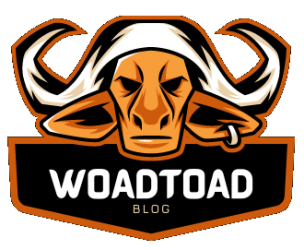Search engine optimization (SEO) is a critical aspect of digital marketing, helping businesses and websites rank higher in search engine results and attract more organic traffic. However, the world of SEO can be confusing for newcomers, filled with technical jargon and industry-specific terms. This article aims to provide a simplified explanation of some key SEO terms, making it easier for you to understand and implement these strategies.
Keywords
These are the phrases and terms that users enter into search engines to find information. When crafting content, it’s essential to include relevant and targeted keywords to help search engines understand the context of your content and rank it accordingly.
On-Page SEO
This refers to the optimization of individual web pages to rank higher in search results. On-page SEO involves optimizing elements like titles, headings, meta descriptions, and content for target keywords.
Off-Page SEO
This encompasses all activities outside of your website that influence its ranking in search results. Off-page SEO primarily involves building high-quality backlinks from authoritative websites, which signal to search engines that your site is a credible and valuable resource.
Technical SEO
This aspect of SEO focuses on optimizing the backend structure and coding of your website. Technical SEO includes factors like site speed, mobile-friendliness, and structured data, which help search engines crawl and index your site more efficiently.
SERP
The Search Engine Results Page (SERP) is the page that displays the results for a user’s search query. Your goal in SEO is to rank as high as possible on the SERP, ideally on the first page, to increase visibility and organic traffic.

Backlinks
These are links from external websites pointing to your site. High-quality backlinks from authoritative sources can significantly boost your website’s SEO, as they indicate to search engines that your content is valuable and worth linking to.
Meta Tags
These are HTML tags that provide information about your web page to search engines. Meta tags include the title tag, meta description, and header tags (H1, H2, H3, etc.). Properly optimizing meta tags with relevant keywords can improve your website’s visibility in search results.
Anchor Text
This is the clickable text within a hyperlink. Using descriptive and relevant anchor text can help search engines understand the context of the linked content, potentially improving the SEO of both the linking and linked pages.
Long-Tail Keywords
These are longer, more specific keyword phrases that typically have lower search volume but higher conversion rates. Long-tail keywords are valuable for targeting niche markets and attracting highly relevant traffic.
Domain Authority (DA)
Developed by Moz, Domain Authority is a metric that predicts how well a website will rank in search engines. DA scores range from 1 to 100, with higher scores indicating a greater likelihood of ranking well.
The Importance of Understanding SEO Terms
“SEO can be a confusing topic, and to make matters worse there are lots of technical terms that don’t always mean the same thing.” – Citation: Matt Jackson, SEO Glossary
When you start working on your SEO strategy, it’s important to understand what these terms mean so that you can effectively implement your plan.
Conclusion
By understanding these fundamental SEO terms, you’ll be better equipped to navigate the world of search engine optimization and improve your website’s visibility in search results. Remember that SEO is an ongoing process that requires continuous learning, experimentation, and adaptation to stay ahead of the ever-evolving search engine algorithms.
